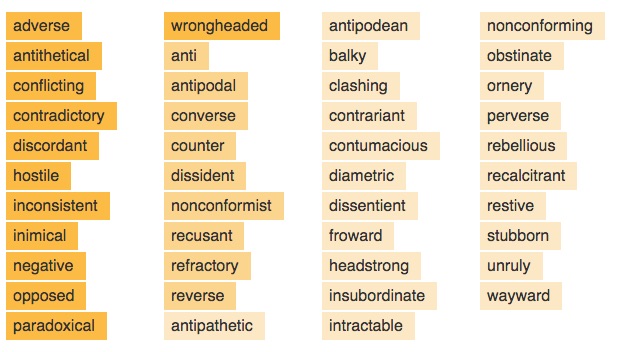Polemics vs. Analysis

Too much of what I read, masquerading as analysis, is just polemics. That’s a shame, because polemics generates more heat than light.
Basically, there are two ways of arguing.
When you argue polemically, you start with a position. For example, you may start with the idea that social media marketing is effective, or that gun laws don’t work. Then you conduct search for arguments, statistics, or examples to back up your position. The polemic researcher asks these questions:
How can I prove I’m right?
Which are the the most powerful arguments for my side?
Who believes in what I’m going to say, and can I quote them?
Of all the statistics or poll results I can find, which ones back up my position?
How can I make the people and arguments on the other side look bad, evil, stupid, or dishonest?
The greatest sin in polemics is to admit you were wrong, so polemicists rarely change their minds.
Researchers in the analyst mindset (as I have known it) work just as hard, but ask very different questions. The analyst asks:
What evidence backs up each point of view?
What are the most powerful arguments for each side?
Who is the best representative of each viewpoint, and can I speak with them to understand why they feel that way?
What do the statistics actually say?
What is the higher truth here, which might explain why smart people disagree?
The analyst eventually takes a position and draws a conclusion, just like the polemicist. But that position is subject to change based on evidence.
The greatest sin in analysis is lack of perspective, because it gets in the way of the truth.
Many polemicists believe they are analysts, but no analysts yearn to be polemicists.
To find out which you actually are, ask yourself a few questions:
Which side am I on? Analysts answer “the truth, wherever that is.” Polemicists answer “my team’s side.”
Could I change my mind? Have I ever changed my mind? If you couldn’t imagine changing your mind about whatever you are researching, you’re a polemicist. If you never have changed your mind, then you’re either a polemicist or an infallible genius.
How do you feel about people who disagree with you? If the answer is “fascinated, curious, and energized to hear an an alternative viewpoint,” you are an analyst. If the answer is “disgusted” or “threatened,” you are a polemicist. If you cannot summon up respect for those with opposing viewpoints, you are polemic.
When you argue, are you more likely to be angry or curious? Polemicists get angry a lot more often.
Who pays you to do research? If the answer is a company, an industry group, or a partisan think tank, you are a polemicist. If you’re a consultant who nearly always agrees with your clients, you are a polemicist. If your money comes from an independent media or research company or a company that researches investments, you’re an analyst. If your consulting clients hire you for independent thinking even thought they often disagree with you, you’re an analyst. (If nobody pays you to do research, you’re a freelance loudmouth. I should know.)
As media slants left and right (and revenues drop), independent research and analysis is getting rarer. Polemics is marketing a position, and there’s money for that. Analysis is the search for truth, and it has few patrons. But if you are an an analyst, keep at it. We need more people like you.
Wow Josh–I haven’t heard the word polemics since I was in Bible college. Not a word you hear everyday. I love this post. When I read it, I think of all the talking heads on cable news shows.
All the talking heads on cable, as well as every person posting “proof” of their various positions on social media. Enjoyed this read, was educational and provided me a stick to poke in the eye of those social media “experts.” Ha!
I’m sure the “poke in the eye” bit is a joke, but since there is no “irony” button for these posts…
Mind you, irony can be used to take a swing at someone with whom you disagree just as much as it can be used to lighten the mood. The former is very much a polemicist approach, IMHO.
Great piece, Josh, and as an inveterate polemicist of many decades standing, I feel suitably chastened.
By this measure, every other post I found on this blog amounts to a polemic. Funny, that.